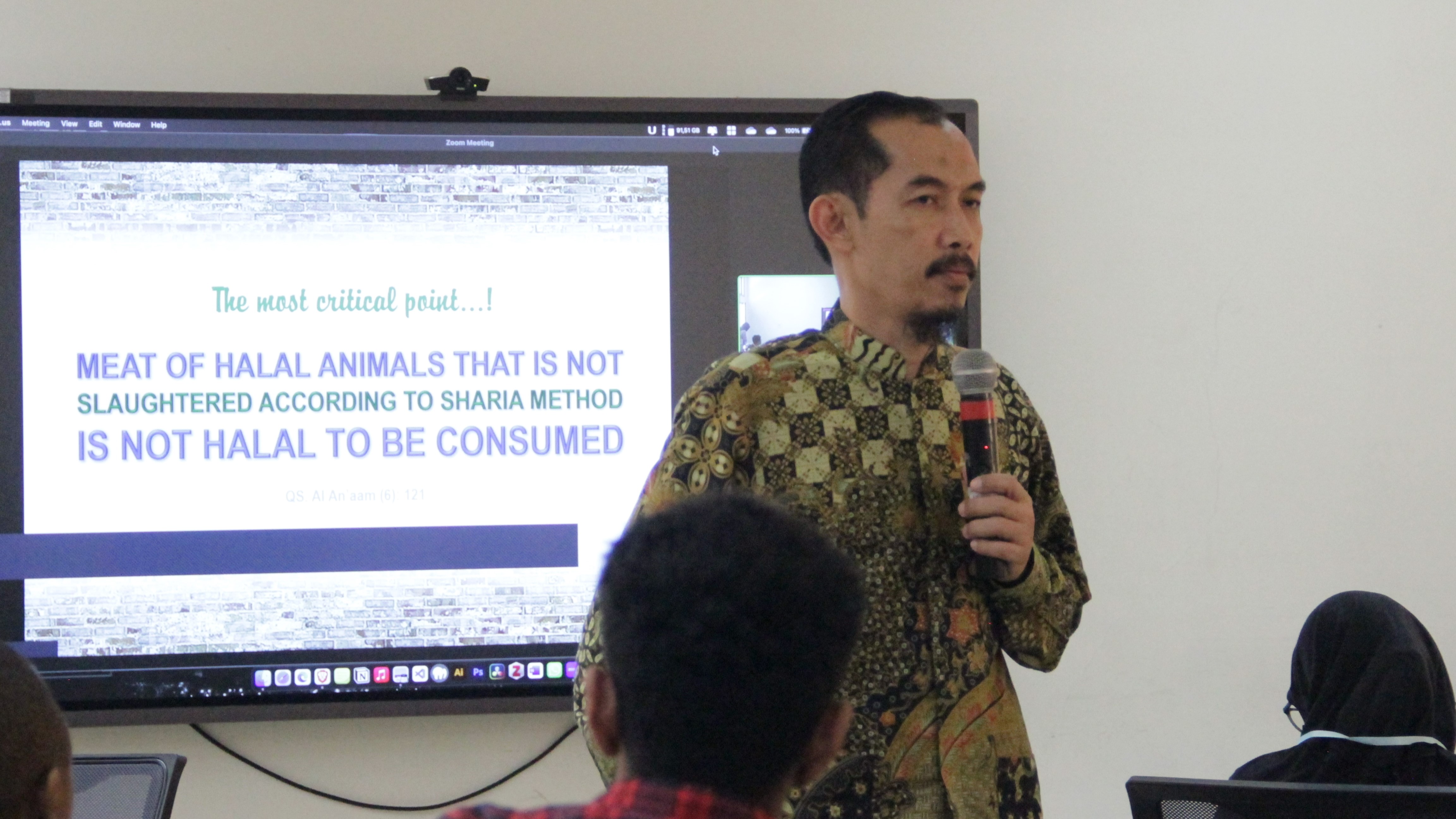Apart From the Speakers From the Faculty of Science and Technology, UGM Lecturer - Nanung Danar Dono, S.Pt., M.Sc., Ph.D. Also Gave a Seminar on the 2nd Day of the 2023 Summer Course

Apart From the Speakers From the Faculty of Science and Technology, UGM Lecturer - Nanung Danar Dono, S.Pt., M.Sc., Ph.D. Also G
The second day began with the presentation of the online groups' discussion results from previous day. It was then continued by the third course by Dr. Isma Kurniatanty from UIN Sunan Kalijaga, titled "Detection of Halal Product Using Biology Molecular Techniques". Dr. rer. medic. Esti W. Widowati. Dr. Isma began her course by asking the participants, "Are you sure that your food is halal? How can know that?" that triggered the participants to participate in the discussion actively.
Dr. Esti noted that the product's halal critical point is step of food production that can be contaminated with non-halal ingredients such as from dogs, rats, alcohol, and porcine. She further explained that halal assessment includes DNA detection in the form of PCR (conventional and real-time PCR), protein detection in the form of rapid test kits, and LC-MS, and alcohol detection in the form of flame chromatography ionization detectors.
During the break between lectures, the participants could see around the halal festival to see the halal products from UMKM (Usaha Mikro Kecil Menengah) or MSMEs (Micro, Small, and Medium Enterprises) booths in the science and technology faculty lobby. By collaborating with Lembaga Pendamping Proses Produk Halal – Halal Center UIN Sunan Kalijaga, this festival was joined by various MSMEs in Yogyakarta.
The fourth course was brought by Frida Agung Rachmadi, M.Sc from UIN Sunan Kalijaga, with topic "Application of Biosensors for Halal Detection". He explained that the process of guaranteeing halal and haram will be examined by a halal institution (BPJPH) and continued by the auditor (checking still ambiguous material) with the help of appropriate instruments and methods. "Instruments and methods for identifying non-halal products and raw materials include FTIR spectroscopy, chromatography, electronic nose, differential scanning calorimetry, ELISA techniques, and real-time PCR," he explained. At the end of the session, the offline participants could directly see the process of using sensors to determine the halalness of a product.
The fifth course by Nanung Danar Dono, S.Pt., M.Sc., Ph.D. from Universitas Gadjah Mada University with the topic "Halal Practices in Slaughtering Animals" was moderated by Jumailatus Solihah, M.Sc. He explained the ways, manners, and violations in slaughtering animals. He also explained the differences between the Muslim world and Western countries regarding the slaughter of animals. For Western countries, slaughtering animals that are still alive is a cruel act, and it will hurt the animal and harm it to slaughter, so the animal must be stunned first.
"According to scientific evidence, the Islamic slaughter method is one of the most humane types of slaughter. Quickly stabbed the throat and veins cutting the main veins. The main components of blood, oxygen, and glucose are necessary for the animal to stay alive, so the animal instantly loses consciousness and will not feel pain afterward. The movement and spasms that follow are simply muscle spasms due to the rapid flow of blood outside the body, not due to pain." He explained scientific evidence about slaughter between Muslims and Westerners. The second day's session ended with a discussion from each group with a predetermined discussion "What are the global issues related to halal meat."
